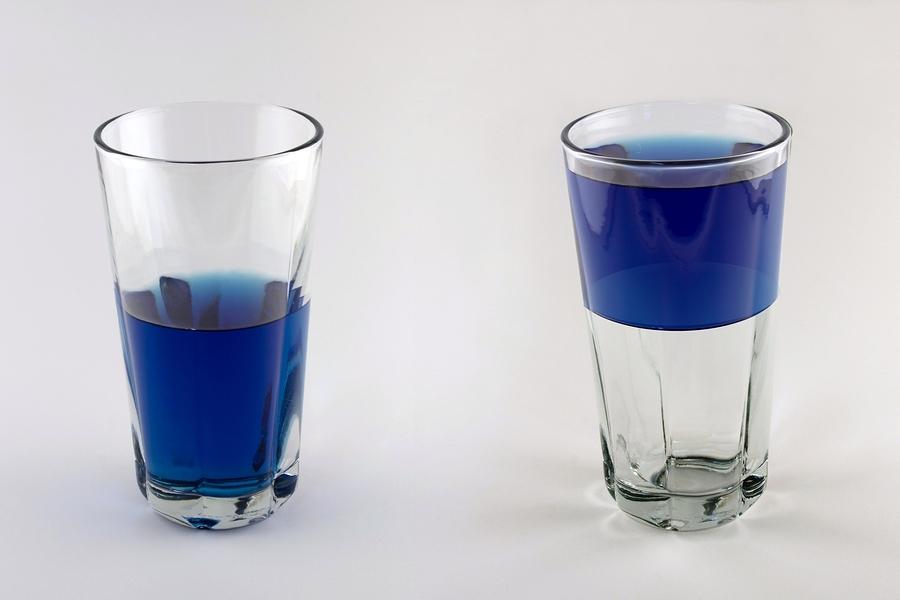The Glass is Half Something
How the Way We See Life Affects the Way We Live It
The glass is always half empty – except during first dates, weddings, parties, after parties, or any other part of life that is too good to be associated with the word “empty”. But when the first date was two weeks ago and the phone still hasn’t rung or the party stops and you rediscover why you felt the need to party in the first place, it’s hard to see just how much life has to offer.
While I would like to think that people can see just how great life can be all the time, the sad fact is that depression is so prevalent that the word has almost become synonymous with sadness or unhappiness. However, depression isn’t just sadness, but a feeling resonating in a lack of motivation – the kind of feeling that makes a person just lay in bed staring at the ceiling. Bloggers equate depression to cancer or death, as if life is a punishment that can be escaped by dying. There is a fine line between sympathy and acceptance, and messages like these sound a lot like a white flag being hoisted.
For people who are depressed these kind of thoughts are completely logical. Life has no purpose, so why live? Then they go on Facebook or turn on the TV and hear people who are “happy” saying that their pain won’t end and they have to find a way to deal with it. Because, after all, depression is a medical illness in the brain’s functioning, and there is nothing that can be done to change that, right?
Wrong.
Despite what medical companies and bloggers tell you – depression isn’t an incurable disease. In fact, eighty percent of people who seek treatment see an improvement in four to six weeks.
According to the Depression and Bi-Polar Support Alliance of the unsuccessful treatments, fifty percent are caused by medical non–compliance. Meaning ten percent of people aren’t helped because they stop taking the medicine, take it incorrectly, or they stop getting treatment. Meaning a portion of the 30,000 suicides could have been prevented if people believed that life could get better. [Depression Stats]*Meaning at least 2,000 people died because somewhere someone failed to tell them that there was something they could do besides trying to scrape by.
Is it easy to cure?
No. But there are not many things worth doing that are not easy.
To some people, it may seem naïve that something as vague as hope can make a difference, but the data suggests that the problem is the way we view the world.
Is taking this pill really going to help me?
Am I ever going to get better?
Is life worth living even if I do get better?
These are the kind of questions depression causes. Every time we say “my life sucks” or “I hate my life” we are telling the person across the room who is contemplating suicide that even if they get better, life is still going to suck. When we make rampant speculation of “what it’s really like to be depressed” we draw a line between normal people and sad people. Not to mention the fact most of this speculation is inaccurate and highly exaggerated.
Slam poetry champion, Rudy Francisco, said, “It doesn’t matter if the glass is half full or half empty; there’s water in the cup, drink it.”
It’s time people start taking this to heart because life is going to fluctuate between low points and high points, but even if life is hard there is still a life to be lived.
The glass is always half something.
The fact that we can feel pain and joy is evidence that we are alive. Too many times life is bad or good – when in reality, life is simply happening.
To those who don’t suffer from depression – your problems aren’t the end of the world and life isn’t always terrible. Remember, the way you view life affects. You’re likely to dehydrate while complaining that the glass isn’t as full as it should be.
And to those who are depressed, know that life will get better – life always gets better.

Mario is a senior and a second year staff member of the Wrangler. He likes piña coladas and getting caught in the rain (not really). He enjoys Reeses...



